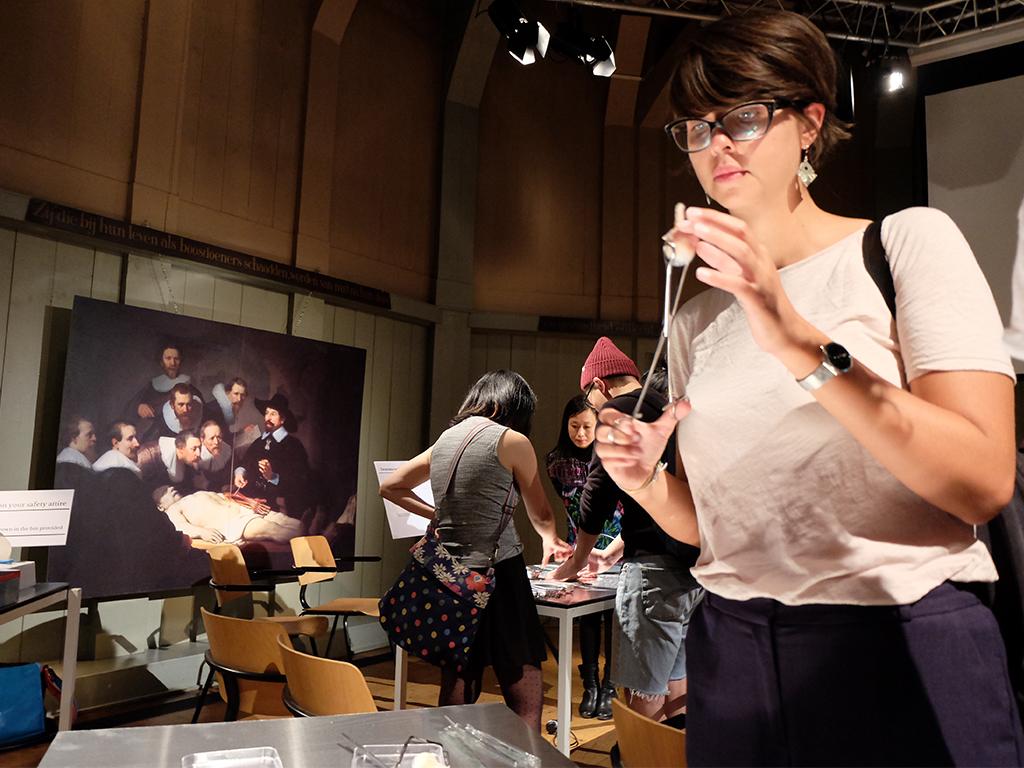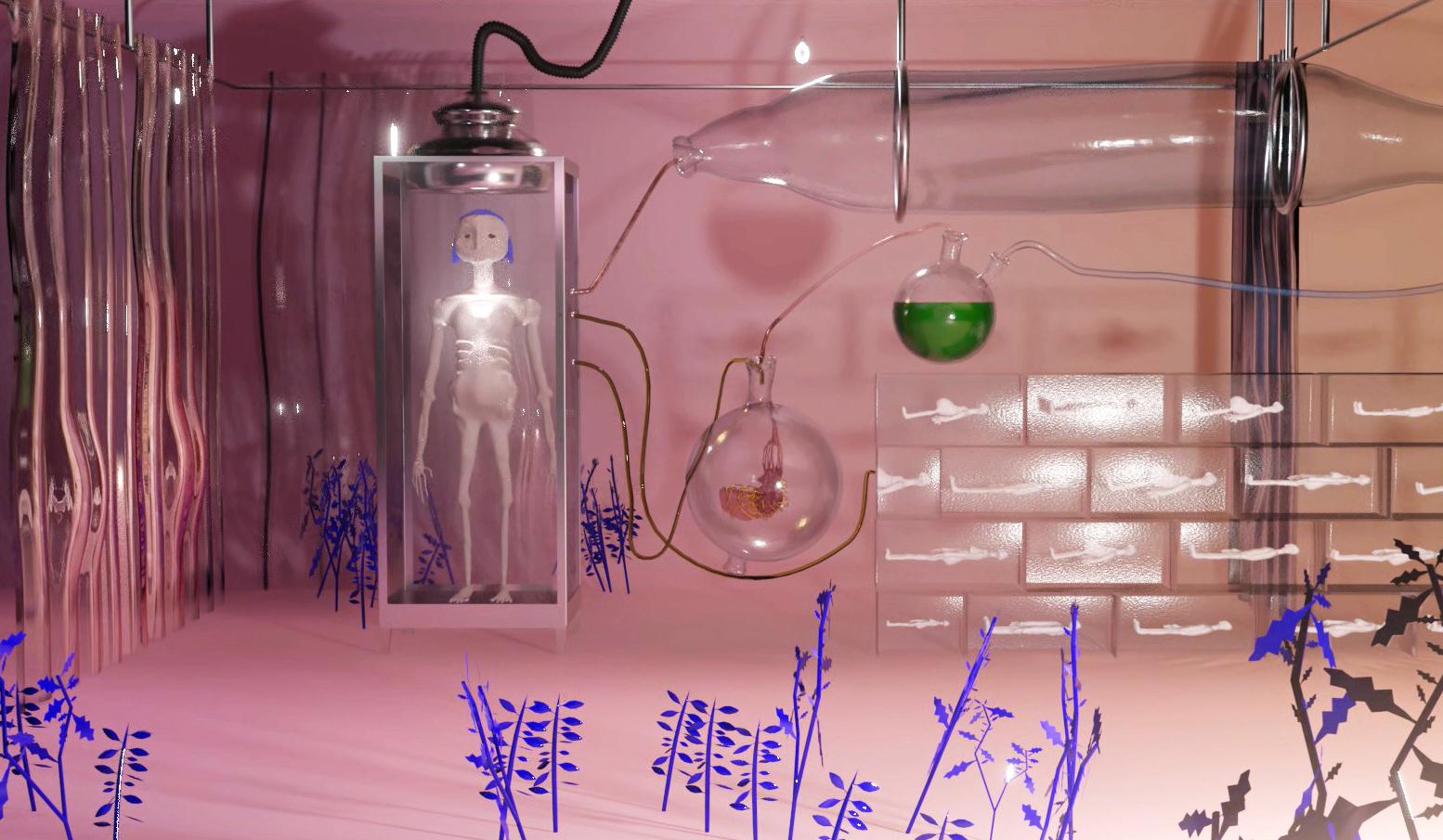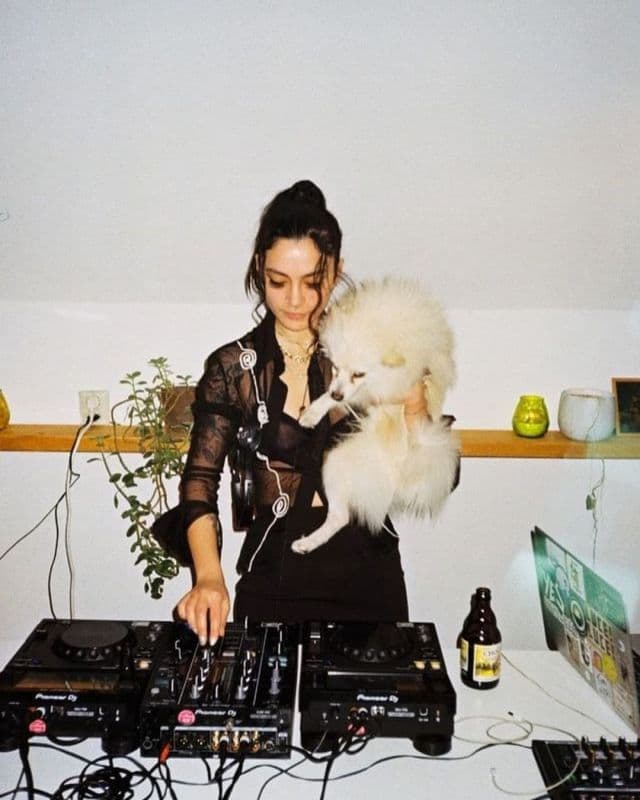Last weekend Agi Haines finished her one year artist in residence at Waag. Visitors could take part in the interactive exhibition ‘The anatomical lesson: dissecting medical futures’ by interacting with Agi’s sculptures. In her work Agi focuses on the implications of technology and their impact on the human form. She duplicates human organs through 3D-bioprinting and traditional sculpting methods to explore what human modification can one day mean for us.
The anatomical lesson: dissecting medical futures’
The exhibition was a unique experience for the visitors as it is rarely allowed to touch, interact and even cut into the sculptured human organs. Visitors responded both curious as scared, as the human organs are sculpted in such a realistic way it is hard to distinguish them from real. Find the pictures of this intruiging exhibition on our Flickr.
The exhibition took place in the heart of the historic Waag Building in the Theatrum Anatomicum. A room with historical significance for innovative and novel research into human anatomy and designed for cutting up cadavers. In her exhibition Agi Haines bridged the gap between the history of the theatre and the future of medical representation. Agi continued in the line of this location by making the exploration of the human body an intriguing spectacle for its visitors.
Artist in residency
Agi Haines worked as artist in residence at Waag's Open Wetlab as part of the 3Package Deal program of the Amsterdam Fund for the Arts. Agi's residency within 3Package Deal is shared with Mediamatic and Professor Toby Kiers' department of animal ecology at the Faculty of Earth and Life Sciences at Free University Amsterdam. Agi will continue looking at how we can use speculative design to reflect on how we do medical practices and how we represent them in her PhD research.
As part of the 2016 3Package Deal (Social Design) experimental designer Frank Kolkman will start working at Waag. Kolkman will research the impact of our ideas of technology by asking questions about the ‘afterlife’ in a time in which faith in rational science and technology is gradually replacing our religious belief systems.


